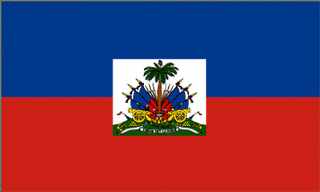It is the only source that can provide a chance for economic breakthrough
Published:
21 March 2005 y., Monday
Money from Russia’s Stabilisation Fund is expected to be invested abroad in dollar-nominated securities, with minimum investment risks and minimum profitability at 2-4%. These funds have until now been kept in Central Bank accounts. This means that a great deal of money will soon appear on the financial markets. On February 1, 2005, the Fund totaled 647.2 billion roubles ($23.1 billion), which mostly came from taxes on oil sales with prices exceeding $20 per barrel and export duties from oil companies.
The crucial question is how this money should be used. Money can only be taken out of the Fund when it has more than 500 billion roubles. Therefore, more than a fifth of its resources can already be used. This is a key issue for Russia’s economy, as the positive overseas market situation in recent years has been almost exclusively responsible for its growth.
However, experts are not tired of repeating that the potential of the resource-oriented Russian economy has been virtually exhausted. The mechanism whereby "we produce oil, sell it and enjoy the benefits" is becoming increasingly less effective. The country is now at a stage when it must introduce an industrial policy. However, any policy only makes sense when there is money to implement it.
Russia’s stock market and banking system do not provide the necessary financing for the real sector of the economy. Direct foreign investment in Russia remains at a very low level, while foreign investment in general is concentrated on either the import of equipment or foreign borrowings. The country obviously needs sources for further growth. The Stabilisation Fund is virtually the only potential source today and a genuine war is being waged for its funds.
Šaltinis:
financialexpress.com
Copying, publishing, announcing any information from the News.lt portal without written permission of News.lt editorial office is prohibited.
The most popular articles
 In its first meeting in 2010, the Gas Coordination Group, under the chairmanship of the Commission, has focused today on the assessment of the situation on security of gas supply in the EU-27 and countries of the Energy Community and discussed priorities for the work of the Group in 2010.
more »
In its first meeting in 2010, the Gas Coordination Group, under the chairmanship of the Commission, has focused today on the assessment of the situation on security of gas supply in the EU-27 and countries of the Energy Community and discussed priorities for the work of the Group in 2010.
more »
 Luc Van den Brande, President of the EU Committee of the Regions (CoR), has used his first meeting with the President of the European Council, Herman Van Rompuy, to underline the importance of consultation between local, regional and national authorities.
more »
Luc Van den Brande, President of the EU Committee of the Regions (CoR), has used his first meeting with the President of the European Council, Herman Van Rompuy, to underline the importance of consultation between local, regional and national authorities.
more »
 Basile Nkwesi, Directeur Commercial of Multiprint, speaks for dozens of frustrated business managers in this busy enterprise center when he talks about Cameroon’s costly and unreliable electricity.
more »
Basile Nkwesi, Directeur Commercial of Multiprint, speaks for dozens of frustrated business managers in this busy enterprise center when he talks about Cameroon’s costly and unreliable electricity.
more »
 During 2009, over 2400 new corporate clients, whose total number currently exceeds 16 thousand, began using Bank SNORAS services.
more »
During 2009, over 2400 new corporate clients, whose total number currently exceeds 16 thousand, began using Bank SNORAS services.
more »
 In 2009, the European Investment Bank (EIB) provided EUR 2.5 billion in 16 credit lines for financing the investment projects of SMEs (EUR 1 955 million) and local authorities (545 million) in Spain.
more »
In 2009, the European Investment Bank (EIB) provided EUR 2.5 billion in 16 credit lines for financing the investment projects of SMEs (EUR 1 955 million) and local authorities (545 million) in Spain.
more »
 In 2009, the number of counterfeit euro coins removed from circulation was 172 100, down from 195 900 the year before.
more »
In 2009, the number of counterfeit euro coins removed from circulation was 172 100, down from 195 900 the year before.
more »
 Haiti began participating in the International Monetary Fund’s General Data Dissemination System on December 28, 2009, marking a major step forward in the development of its statistical system.
more »
Haiti began participating in the International Monetary Fund’s General Data Dissemination System on December 28, 2009, marking a major step forward in the development of its statistical system.
more »
 According to the data of NASDAQ OMX Vilnius Stock Exchange, the price of Bank SNORAS registered ordinary shares grew by more than 2.5 times.
more »
According to the data of NASDAQ OMX Vilnius Stock Exchange, the price of Bank SNORAS registered ordinary shares grew by more than 2.5 times.
more »
 The European Commission has cleared under the EU Merger Regulation the proposed acquisition of Cadbury PLC of the UK by Kraft Foods Inc. of the US by way of public offer.
more »
The European Commission has cleared under the EU Merger Regulation the proposed acquisition of Cadbury PLC of the UK by Kraft Foods Inc. of the US by way of public offer.
more »
 Statistics Lithuania informs that construction input prices inNovember 2009, against October, dropped by 0.5 percent.
more »
Statistics Lithuania informs that construction input prices inNovember 2009, against October, dropped by 0.5 percent.
more »